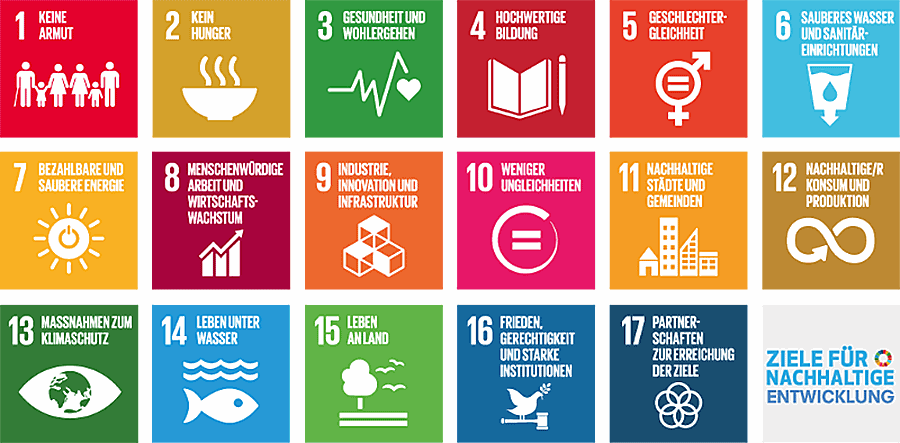Sustainability Strategy Academy of Fine Arts Vienna
For centuries, art and aesthetic discourse have had the character of a promise, although an illusory one. In art, questions of happiness are classically discussed along the idea of beauty as well as through the critical examination of the historical situation. The Academy of Fine Arts Vienna understands culture as development of artistic forms in the context of a good life. In doing so, it benefits from the freedom of universities by the constitution to pose and discuss these questions in an unrestricted manner. We activate urban spaces in which these perspectives can gain relevance and pose existential questions like: Is it necessary to produce/build/sell art and architecture? What is the relationship between art and consumption? For whom is science made? Whose heritage is the cultural heritage? This corresponds to our self-perception of high-quality and critical education - in the fields of art, architecture and education also against the background of research-based (and) artistic practice in dealing with urban structures (SDG 4, 11).
In art, the question of omission has a long history; abstraction, reduction and minimalism are search movements for the basic principles and essence of aesthetic design. An essential aspect of the artistic avant-gardes was the effort to transfer art into the practice of life. In light of the political reassessment concerning the relationship between growth, prosperity and happiness –also in the strategic orientation of state governments – the role of reduction for contemporary lifestyles is of increasing importance. In the discussion of the good life, the contradictions of renunciation and overconsumption come up against each other (SDG 12); contemporary sustainability policy, however, cannot be thought of without a critique of growth. Discussions on perspectives of a society after growth (in the sense of post- and degrowth) are therefore emphatically taking place at the Academy of Fine Arts Vienna. Aesthetic quality and thus the quality of art and artistic education cannot be described in structures of quantitative growth. It is reflected in the quality and structure of experiential processes and the discourses that accompany them. At the same time, it discusses the production conditions of such experience.
While it can be argued about individual preferences in lifestyle, property relations, the structure of social institutions and much more, the preservation of the planetary foundations of life is an absolutely non-negotiable guiding principle. In this sense, sustainability at the Academy of Fine Arts Vienna means first and foremost climate justice (SDG 6, 7, 13). The shaping of the good life is necessarily preceded by the defence of its continued existence. Within the framework of our core tasks as an art university – the researching and teaching engagement with forms of life and processes of experience – these questions have priority.
The immediate threat of the climate catastrophe makes reduction necessary and its transfer into everyday life - especially for an institution that, according to its central purpose, is geared towards enabling young generations to have a qualified future and also to actively helping to shape it. The core areas that are priorities for sustainability developments at an art university can be easily identified: In addition to knowledge transfer and helping to shape societal discourses, the clearest opportunities for development exist in the areas of mobility and resource-conserving facility management.
In this sense, Impact of Arts, the engagement with sustainability agendas in and through art, is central to the Academy of Fine Arts Vienna. Ambitious climate policies are also reflected in the institution's mobility guidelines. There demands for the reduction of air traffic by Scientists for Future are taken up and embedded in a variety of ways in concepts of climate-friendly mobility. In cooperation with the Bundesimmobiliengesellschaft (BIG), we are discussing solutions for climate-friendly energy generation (photovoltaics and forms of better insulation) for all locations and optimizing waste disposal processes and energetics wherever possible. We are striving for the continuous reduction of disposable materials and the successive greening of our buildings and outdoor areas, and are developing projects for an increasingly sustainable canteen.
In addition to intergenerational justice, which is linked to the existential questions of climate protection (SDG 13) and energy policy (SDG 7), the question of educational and gender justice plays a crucial role in the Academy of Fine Arts Vienna's understanding of sustainability (SDG 4, 5, 10). As a Non-Binary University we are pioneers in the field of gender equity and, as a participant in Uninetz II, are continuously implementing measures for university and societal transformation in order to improve educational inclusion.
Sustainability issues, first and foremost climate issues, are also socio-political issues that go beyond the scope of an art university. In order to address peace and hunger in the world (SDG 2, 16), larger socio-political perspectives are needed. A critical reappraisal of the colonial legacy on which the West's overconsumption is based and which remains a major source of poverty and geopolitical conflict. These aspects are central to the sustainability policy of the Academy of Fine Arts Vienna, which in a more local sense strives for and considers contractually stable and transparent employment relationships as well as an inclusive and dialogical operational culture (in the sense of SDG 2 and 8) as parts of its self-understanding.
Art universities are places where the whole is at stake. It is about the question of how a good life is possible and what kind of handling of the our social environment is necessary for this. We want to contribute in a materially aware and resource-conserving way to making the future a sustainable place to live.

![[em]The Bigger Picture[/em], Studio Graphic Arts and Printmaking Techniques, Drawing, Institute for Fine Arts, photo: eSeL - Lorenz Seidler](https://www.akbild.ac.at/en/news/2022/sustainability-strategy-of-the-academy-of-fine-arts-vienna/esel2054.jpg/@@images/image-1400-1066e8d72c9ea67ed41d453421fa1e9f.jpeg)